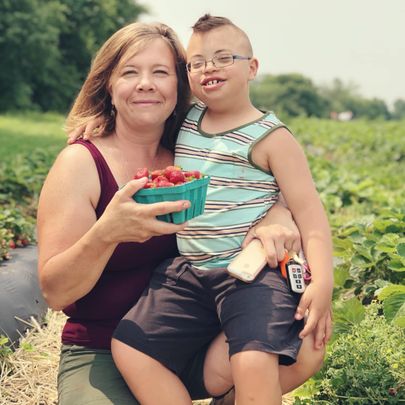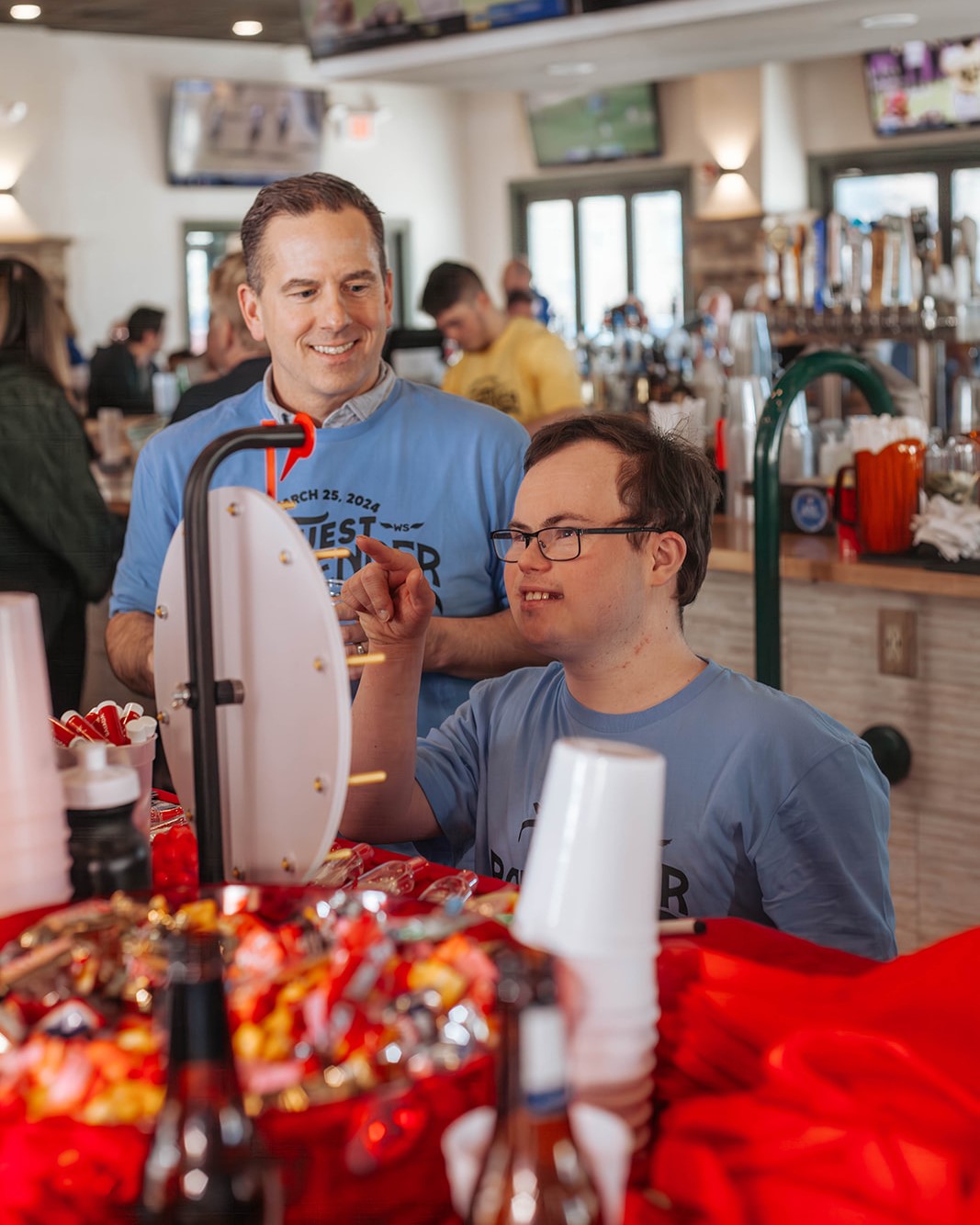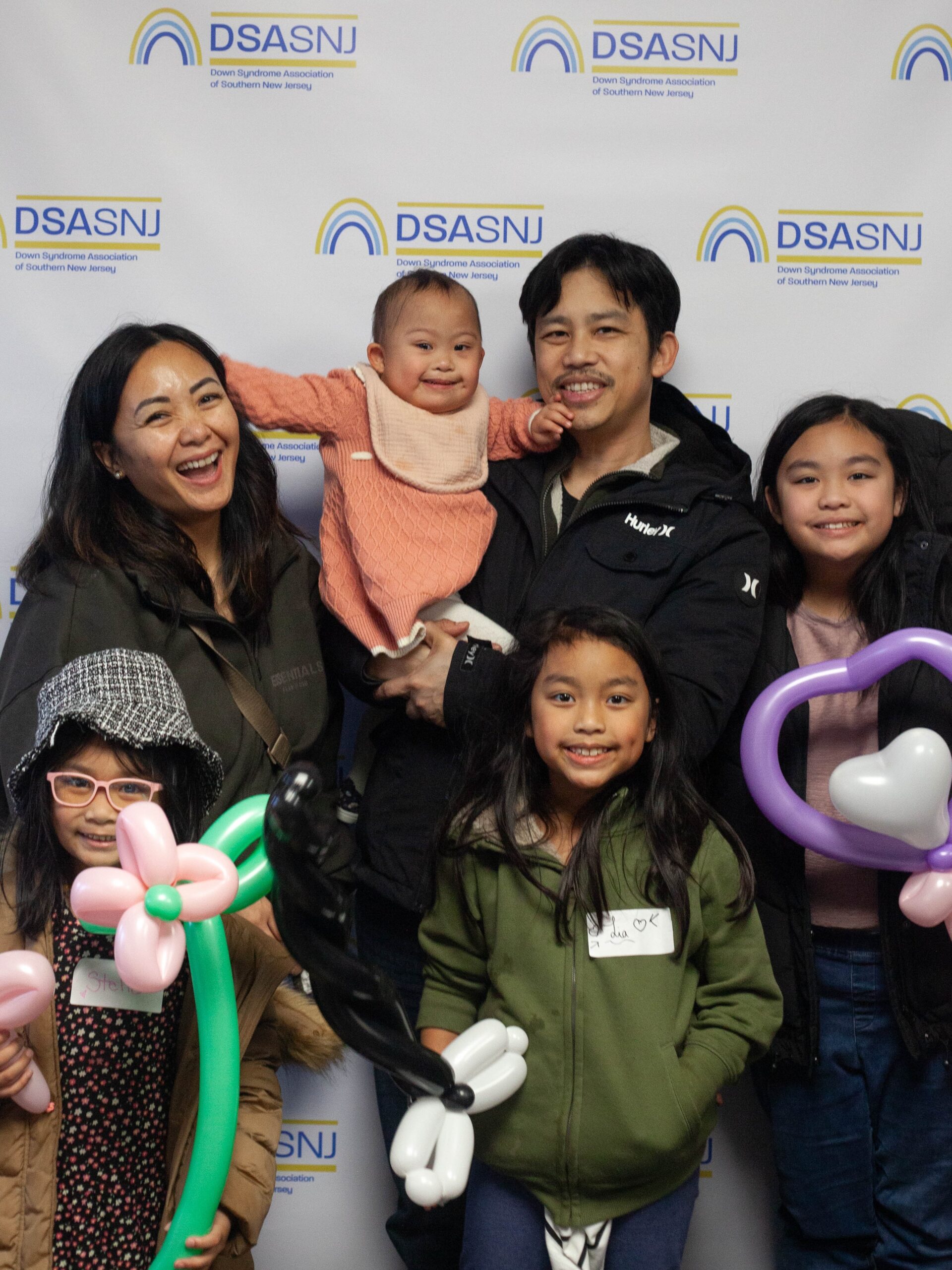National Coverage Determination May Limit Access to AD Treatment
March 14th, 2022 by Global Down Syndrome Foundation
National Coverage Determination May Limit Access to AD Treatment
HealthPayerIntelligence | Mar 14, 2022
March 14th, 2022 by Global Down Syndrome Foundation
National Coverage Determination May Limit Access to AD Treatment
HealthPayerIntelligence | Mar 14, 2022
February 10th, 2022 by Wes Butler
How The Medical System Is Failing People With Down Syndrome And Alzheimer’s Disease
Forbes | Feb 10, 2022
May 16th, 2024 by Cole Wilkes
May 14th, 2024 by Cole Wilkes
May 13th, 2024 by Cole Wilkes
For many families, the threat of Down Syndrome Regression Disorder (DSRD) feels harrowing and constant. Gratefully, two scientists are leading the charge to understand and treat this heartbreaking condition, and thanks to one relentless mom/advocate, they’re working together.
Crnic Institute Executive Director Dr. Joaquin Espinosa and Children’s Hospital Los Angeles Director of Neuroimmunology had no idea they had been developing complementary research on DSRD until mom Linda Roan of Boulder, CO connected the dots for them. The two scientists joined forces to create the first-ever randomized clinical control trial to treat DSRD and secure its funding through NIH’s INCLUDE initiative.
GLOBAL is so proud to support this brilliant work that is helping so many of our loved ones finally “wake up” again after descending into regression. We are just as proud to fight for the continued funding of INCLUDE, which makes life-saving research and clinical trials possible.
Read the full Washington Post article
Learn more about this groundbreaking clinical trial

May 13th, 2024 by Cole Wilkes
Global Down Syndrome Foundation Honored Reps. Hudson and Frankel at Event that Featured Grammy-Nominated Singer and Actress Jordin Sparks and an Inclusive Dance Troupe
Denver, CO, May 10, 2024 –Last night the Global Down Syndrome Foundation (GLOBAL) held its sixth annual AcceptAbility Gala, DC’s largest fundraiser for people with Down syndrome, that raised $400,000 to support important research and medical care to improve the lives of those who happen to have Down syndrome. Representatives Richard Hudson (R-NC) and Lois Frankel (D-FL) received GLOBAL’s highest honor, the Quincy Jones Exceptional Advocacy Award, and pledged their continued strong advocacy in Congress that makes an impact on the lives of people with Down syndrome and their families.

“At GLOBAL, we are working hard every day to elongate life and improve health outcomes for our loved ones with Down syndrome,” says GLOBAL Co-Founder, President, and CEO, Michelle Sie Whitten. “Last night we brought together a room full of bi-partisan support from Congress, NIH leadership, self-advocates with Down syndrome, and corporate leaders, all celebrating the impact of GLOBAL’s work. The joy and excitement at our event and the tangible outcome of our work together is truly rewarding!”
Held at the Marriott Marquis in Washington, DC, the event was attended by GLOBAL awardee alum, Representative Cathy McMorris Rodgers (R-WA) and her son, GLOBAL Ambassador Cole Rodgers. Representative Rodgers’ keynote speech deeply moved the audience. Her determination to pass a game-changing legacy bill, the DeOndra Dixon INCLUDE Project Act, before her poignant retirement from Congress was an important feature of the evening. The bill will help ensure funding for Down syndrome research and medical care from the NIH for years to come.
Celebrities passionate about the cause included Grammy-nominated, multi-platinum singer/songwriter and actress Jordin Sparks; actor, author and public speaker Frank Stephens; author and public speaker David Egan; and award-winning correspondent for ABC News and anchor for ABC News LIVE Kyra Phillips and her daughter Sage Roberts.
To recognize the transformative leadership of Representative Rosa DeLauro (D-CT), the GLOBAL Rosa DeLauro Advancement Award, with a post-secondary scholarship, was provided to Damani Tichawonna from Washington, DC as was the GLOBAL Tom Cole Advancement Award to Julia Greene. Representative Rosa DeLauro was on-hand to personally present both Advancement Awards to the deserving recipients, leaving the audience inspired to do even more for people with Down syndrome and their families.
With the help of GLOBAL Ambassador Isla Eager and her family, Erin Book Mullen, and co-chairs Julie Riccio and Amy Best Weiss, the inspirational gala attracted 300 attendees and raised $400,000 for GLOBAL’s life-saving research and medical care. GLOBAL supports over 200 researchers on the Anschutz Medical Campus at the Crnic Institute for Down Syndrome and at the Alzheimer’s and Cognition Center, as well as 2,500 patients from 33 states and 10 countries at the Sie Center for Down Syndrome. For nearly two decades, Down syndrome was one of the least federally funded genetic conditions in the United States.
“People with Down syndrome enrich our world in unique ways,” says Representative Hudson. “GLOBAL is paving the way for people who are differently-abled so they can live their lives to their full potential with no barriers or bias or obstacles standing in their way. I am honored to support their efforts and to receive this award, and will continue advocating for policies that improve the lives of people with Down syndrome.”
“It was an honor to be with so many great advocates for Down syndrome and to receive such a generous recognition,” says Representative Frankel. “I am proud to support GLOBAL’s mission of elongating life and improving health outcomes for people with Down syndrome. Their AcceptAbility Gala was an inspiring evening that reminds all of us that we must continue to make critical investments in Down syndrome research to uphold the health and dignity of every person.”
At the end of the evening, Jordin Sparks wowed the audience not only with her beautiful voice but by connecting with fans and bringing self-advocates with Down syndrome on stage while performing an intimate, heartfelt performance of some of her biggest hits including “No Air” and “One Step at a Time,” and solo dancer Robert Wallop and inclusive dance troupe RhythmXpress delighted attendees with dance performances set to “Bones” by Imagine Dragons, “Firework” by Katy Perry and “Fireball” by Mini Pop Kids.
Additional notables in attendance included Kim Owens from the National Down Syndrome Congress and Dria Law from the Down Syndrome Association of Southern New Jersey .
To learn more about GLOBAL, visit www.globaldownsyndrome.org.
###
About the Global Down Syndrome Foundation
The Global Down Syndrome Foundation (GLOBAL) is the largest non-profit in the U.S. working to save lives and dramatically improve health outcomes for people with Down syndrome. GLOBAL has donated more than $32 million to establish the first Down syndrome research institute supporting over 400 scientists and over 2,400 patients with Down syndrome from 33 states and 10 countries. Working closely with Congress and the National Institutes of Health, GLOBAL is the lead advocacy organization in the U.S. for Down syndrome research and medical care. GLOBAL has a membership of over 110 Down syndrome organizations worldwide and is part of a network of Affiliates – the Crnic Institute for Down Syndrome, the Sie Center for Down Syndrome, and the University of Colorado Alzheimer’s and Cognition Center – all on the Anschutz Medical Campus. GLOBAL’s widely circulated medical publications include GLOBAL Medical Care Guidelines for Adults with Down Syndrome, Prenatal & Newborn Down Syndrome Information, and the award-winning Down Syndrome World™ magazine. GLOBAL also organizes the annual AcceptAbility Gala in Washington DC, and the annual Be Beautiful Be Yourself Fashion Show, the largest Down syndrome fundraiser in the world.
May 9th, 2024 by Cole Wilkes
May 9th, 2024 by Cole Wilkes
May 8th, 2024 by Cole Wilkes
May 3rd, 2024 by Cole Wilkes
May 2nd, 2024 by Cole Wilkes
April 30th, 2024 by Cole Wilkes
When the Down Syndrome Association of Southern New Jersey (DSASNJ) was formed in 2003, the small group of founding parents were focused on supporting their young children with Down syndrome. As those children have grown and blossomed over 20 years, DSASNJ has grown to service individuals and families from the prenatal stage to adulthood. The organization proudly serves over 120 families across the Southern New Jersey region.
Earlier this month, GLOBAL Vice President – Strategic Alliances, David Tolleson, met with Terri Bank and Dria Law, Co-Executive Directors of the DSASNJ, to discuss their work to build community and why they strongly support GLOBAL’s mission and resources, including the Medical Care Guidelines for Adults with Down Syndrome.
DAVID: Thank you for taking time out of your busy day to speak with me today. So excited to learn more about your important work. My first question is, how did you end up running a Down syndrome organization?
TERRI: My son was born in 2001. There was another group in the area that is still around and we’re very friendly with them, but at the time that group was focused on young teenagers and they really weren’t doing anything for young children. So, in 2003, 4 of us – all moms – started KIIDS. I started as co-chair but have only been off the board for 2 years since then.

DAVID: And remind me what does KIIDS stands for?
TERRI: Knowledge & Information about Individuals with Down Syndrome, though we’ve recently changed the name.
DRIA: I founded KIIDS when I moved to New Jersey in 2011, when my daughter with Down syndrome was heading into kindergarten. It was the first time since she was born that I really had the chance to take a breath, get my head above water, and take advantage of all the great opportunities and activities for her. Eventually, I found my way to KIIDS. Terri and I really clicked and we’ve been co-chairing for years.
DAVID: Tell us about your decision to change your name from KIIDS to DSANJ.
DRIA: It’s something that we kicked around for a couple of years. Going back to when I moved here, it took me awhile finding KIIDS. It wasn’t the easiest acronym to understand. During the pandemic, Terri and I were kicking around how to move from more of a social group to a professional nonprofit. Our constituent group had grown and widened. The children we started with are now young adults. We needed to have a name that better reflects what we do and that is easier for people to find and recognize what we do. It also helps with grant applications. The new name fits the protocol used by most groups nationwide and is easier to find online. We took the opportunity to have a designer fully overhaul our website, to make it much more usable and robust.
DAVID: Is your focus on adults as your population is growing part of the reason you and your board wanted to support the GLOBAL Adult Guidelines with a multi-year pledge?
DRIA: Yes, definitely. Our ages have widened so much. We had to stop and step back for a moment and realize that we have a lot of members over age 20, so we need to expand our activities and what we offer. We also partner with Nancy Hennefer and BUDS, because we have a lot of overlap and they have quite a significant adult population.
TERRI: As we’re doing more partnership activities with BUDS, we’re seeing a lot more people in their 30’s. We don’t know everything that’s going to be needed as this population ages, because there’s not a lot of research or clinical knowledge out there.

DAVID: You’re right. There’s only about a dozen adult Down syndrome clinics in the country, and most of those have severely limited hours or won’t see patients from out of state. GLOBAL has created and is continuing to add medical areas to the guidelines. Today, any healthcare provider anywhere can go online and find our peer-reviewed, evidence-based resource and understand how to better serve their patients with Down syndrome.
TERRI: It is so needed.
DRIA: We’ve pushed the Guidelines out. For those families who are paying attention and are aware, I’m sure it’s very helpful. We want to get it into more hands.
DAVID: Beyond the Adult Guidelines, how does GLOBAL’s research and medical care work make a difference to families in your community?
DRIA: We have a group that it definitely makes a difference for and a group that we’ve yet to reach. I remember the first time I went to the GLOBAL Research & Medical Care Roundtable at the NDSC Convention – I was blown away with the information and resources and depth of knowledge. More and more of our families have gone to the Roundtable over the years and that has been their introduction to GLOBAL. Those are the families that attend the webinars and read the materials and benefit. For those who don’t attend, they’re missing out.
TERRI: I think a lot of people don’t look for information until they need it, which is probably human nature.
DAVID: So many people get their information from social media these days. One thing you might want to consider is when you see a post about the Adult Guidelines, the Prenatal & Newborn Pamphlet, the various research studies, or other information you’d like your families to see, share it on your page.

DRIA: When I think about what had the biggest impact – what put GLOBAL on the map for our families – it was the Congressional hearing and Frank Stephens’ testimony (https://www.youtube.com/watch?v=D_DfwMxEwDM). Many of our families had heard of GLOBAL and knew about GLOBAL in a general sense. But Frank’s testimony was so impactful. It really brought the message home to a lot of our families that research is crucial. Hearing “self-advocate”, “congressional hearing”, “NIH”, and some of the funding numbers discussed was really impactful.
DAVID: Frank did an amazing job. We’re blessed to have him as a member of our Board. My last question is, do you have any advice to share parents – either new or those with a bit more experience?
TERRI: My biggest advice for parents is just get involved. Go to the events. Talk to new parents and old parents because that’s how we learn. We learn so much just by communicating with other parents through every stage of life. I’ve always learned by talking to someone who is a year or two ahead of me on this journey.
DRIA: Get involved and know there’s an amazing community out there for you. It’s so easy to stay in your own bubble, especially in those early, scary days. Get involved with other families. Check out the groups that are there and see what’s a good fit for your family. There are so many resources out there, like GLOBAL, and in the wider disability community, too. You’ll find reassurance, acceptance, and understanding. One of our goals with DSASNJ is to broaden the network of disability rights organizations we work with beyond the Down syndrome community. It really helps when working with school districts and the community.
DAVID: Particularly when you’re talking about advocacy on the state and federal level. Any meaningful change that has occurred over the years in disability rights has been by people working together. Thank you both for your time. You’re doing amazing things and paying it forward. It’s like you said, Terri – we’re now the more “seasoned” parents, but we learned it from those who came before us and now we need to pass it on to those coming behind us.
TERRI: When my son, Michael, was born, I was told that I was going to meet the best people and I thought, “I don’t need anymore friends,” but now I don’t know what I would do without this community.